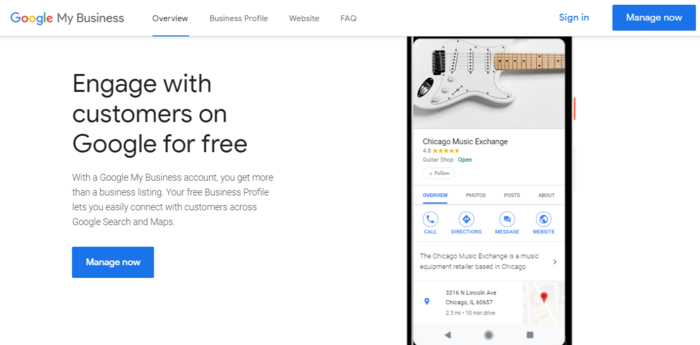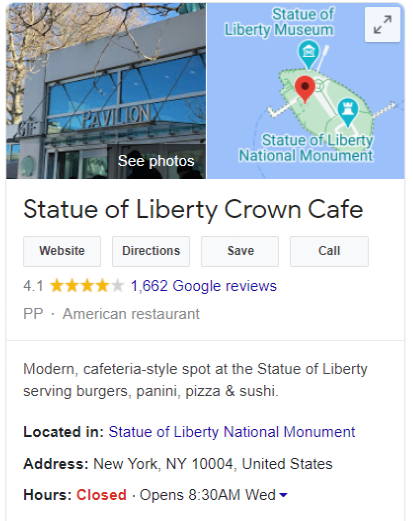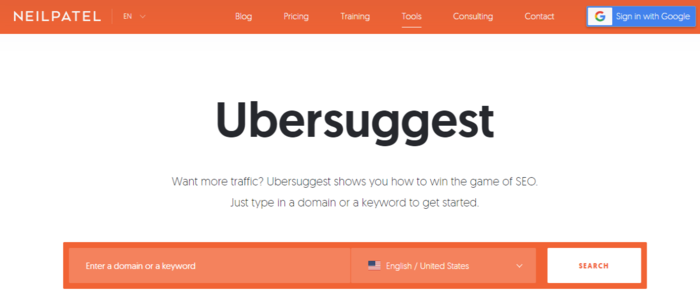
In these modern times of digital transformation, it may seem like most digital marketing strategies are designed for online businesses.
So are there any digital marketing strategies for brick-and-mortar businesses?
Yes, there are, and one of the most effective ones is hyperlocal marketing.
What is Hyperlocal Marketing?
As the name suggests, hyperlocal marketing is a marketing strategy that focuses on reaching customers in your vicinity. It is targeted to motivated people who are ready to buy your products.
The main goal of hyperlocal marketing is to increase foot traffic to your business. This is achieved by strategically placing the right ads in front of the right people at the right time.
It could also serve the purpose of raising brand awareness in your specific locale.
Several factors are considered, with the main one being your prospect’s location.
Hence the name hyperlocal marketing.
Advantages of Hyperlocal Marketing
Many businesses are adopting hyperlocal marketing for the tremendous results it brings. It has many advantages over other marketing methods for both online and offline businesses. Here are the top five:
Bring in Hot Hyperlocal Leads
Because it is a very niche marketing technique, hyperlocal marketing has the advantage of bringing in leads that are ready to make a purchase. That’s because most of the people targeted by hyperlocal ad campaigns are already looking for the product or service you offer.
Take, for example, someone looking for a coffee shop. They’ll search for a coffee shop “near me,” and if they are in your vicinity, your coffee shop will be recommended to them by search engines. Or, they’ll be served one of your ads on their social media timelines.
Even if they’re not actively looking for a coffee shop, you can send out push notifications alerting people in your vicinity of a special you’re running.
Don’t Require Huge Ad Spend
Because you don’t have to run regional or nationwide campaigns, your ad spend can be kept at a bare minimum.
You also save on your advertising budget because you’re targeting a hyper-specific audience. This has the effect of reducing your cost per target while increasing your return on ad spend (ROAS).
Easy to Set Up and Run
Again, the niche nature of hyperlocal ad campaigns makes it easy to set up and run. It’s also easier to create personalized ads, resulting in higher conversion rates.
Easy to Measure Performance
When it comes to measuring performance, it’s easy to track as you can tell where your foot traffic is coming from.
Help Build Relationships with Customers
One of the biggest keys to growing a business is to build relationships with your customers.
Executed well, hyperlocal marketing will help people in your geographic area know that they can depend on you when they need a product or service you offer. As a result, most will turn into repeat customers. Better yet, they can end up being your brand ambassadors.
Hyperlocal Ads Work in Real-Time
A big advantage of hyperlocal marketing is that it works in real-time. This ability increases conversion rates as it offers prospects deals on products or services they’re actively looking for.
With all these advantages, you can’t afford to ignore hyperlocal marketing.
How Does Hyperlocal Advertising Work?
Thanks to technology, marketers can pinpoint the exact locations of their prospects. This can be done through:
- IP addresses
- GPS
- Wi-Fi
- Bluetooth signals
Knowing a prospect’s location is crucial to running hyperlocal ad campaigns as it allows you to narrow down your audience to a specific area. Most ad platforms, like Google and Facebook, give you the option of targeting a particular locality, making it easy for you to create your hyperlocal ad campaigns.
Once you’ve determined your target area, you can then set triggers that will deploy your ads.
Examples of triggers can include:
- Search queries
- Search history
- Behavioral activity (places your prospects have recently visited)
Depending on your campaign, your hyperlocal ads could be in the form of text messages, app notifications, email alerts, ads on search engine results pages (SERPs), and more. It could even be a combination. These are sent to the prospects’ mobile device when they enter your selected boundary and perform an action that sets off your triggers.
Fundamentals to Get Right Before Launching Hyperlocal Ad Campaigns
Now you know what hyperlocal marketing is, and you also see why it’s so essential to your marketing strategy.
Let’s look at some fundamentals you must get right before creating your hyperlocal ad campaigns that drive results.
Optimize Your Google My Business Page
One of your first stops as you lay the foundation for your hyperlocal ad campaigns is your Google My Business (GMB) listing.

GMB is a free tool from Google that enables businesses to manage their online presence on Google search results. It’s especially useful for brick-and-mortar businesses as it helps Google users find businesses near them.
You must optimize your GMB listing as Google uses three main criteria when serving users with GMB listings:
- Relevance. For your business to be deemed relevant, it must match a searcher’s query.
- Prominence. This has to do with whether or not your business is reliable enough to recommend to users.
- Proximity. Is your business close enough to the user to recommend?
If you can optimize for these three, you’ll stand a better chance of success with your hyperlocal ad campaigns.
So how do you optimize your GMB listing?
Optimizing for GMB Relevance
- Create detailed keyword-focused business descriptions
- Choose the right category that describes your business
- Set your workdays and operating hours
Optimizing for GMB Prominence
- Get high-quality reviews
- Use high-quality images
- Manage your online reputation well
Optimizing for GMB Proximity
While it’s virtually impossible to influence a searcher’s proximity to your business, there are a few best practices you can follow to improve your chances of Google serving your GMB listing in search results.
One such best practice is to create separate landing pages for each of your locations if you have more than one business location.
Another tip is to leverage famous landmarks near you. Including these in your business description will help your business show up when users search using that landmark as a reference. Here’s an arbitrary example:

With your GMB listing optimized, we can now move on to other fundamental elements you need to get right if your hyperlocal ad campaigns are to give you a healthy ROAS.
Ensure Your Local Search and Mobile Optimization is On Point
Local SEO plays a huge role in the effectiveness of your hyperlocal ad campaigns.
Research by Google shows that “near me” searches on mobile have increased by over 500% over the last few years.
A few tips to help you with this include:
- Create hyperlocal content (using location-specific keywords)
- Feature your location in some of your URLs
- Create location-specific metadata
- Focus on long-tail keywords
- Optimize for voice search
- Include contact info on your website
Besides optimizing for local SEO you must make sure your website is mobile-friendly.
Most local searches are performed on mobile devices, and if your website doesn’t display correctly on mobile devices, you stand a chance of losing your prospects. With hyperlocal marketing, a positive online user experience (UX) can help drive your offline conversions.
If your brand can rank high for local search queries, it is easier for you to win at hyperlocal marketing. So, invest in ranking for your local search terms, and make sure to give your prospects a positive UX online, too.
Tips for Creating Hyperlocal Ad Campaigns That Drive Results
Ready to create hyperlocal ad campaigns that drive results?
Let’s take a look at a few tips that will help you reach your marketing goals.
Use the Right Keywords For Hyperlocal Campaigns
Keywords play a critical role in the success of ad campaigns. For your hyperlocal ad campaigns to be effective, you must focus on location-based keywords. This is where tools like Ubersuggest come in handy.

However, stopping at the right keywords to target is only half the battle, as keyword research is concerned.
You must also consider negative keywords.
These are keywords where you don’t want your ad to appear. That’s because negative keywords serve no purpose in helping you reach your goals. However, they can be dangerous as they could drive your ad spend up.
Tap Into the Local Culture
When creating the copy for your hyperlocal ads, tap into the local culture.
In short, leverage local stereotypes and incorporate local lingo if possible.
This will add a touch of personalization to your ad campaigns. As a result, your prospects will feel safe following your ad to your location.
Tapping into the local culture will also help your brand become acceptable as a relevant part of the community.
This can increase brand loyalty.
Ride on the Back of Your Competitors
When setting up your hyperlocal ad campaigns, your biggest help can come from the most unlikely source.
Yes, I mean your competitors.
How can they help you?
Easy.
Run campaigns in the vicinity of their locations.
Of course, for this strategy to work, you must be able to prove why you’re the better option. You can do this by pitching your unique value proposition (UVP) or by offering an incentive.
One of the best examples of this strategy is Burger King’s WhopperDetour campaign. Burger King drove traffic to their stores by offering app users Whopper sandwiches for a mere penny as long as they were in the vicinity (within 600 feet) of a McDonald’s.
The best thing about this strategy is that your ads will go out to people ready to make a purchase. Converting them into paying customers becomes a piece of cake.
Target Events Near You
People love events.
They love the excitement building up to an event that they’re planning on attending.
You can leverage that excitement by creating hyperlocal ad campaigns targeted at said events.
Not only will this help you get your target audience’s attention, but it will also help you leverage the excitement created by the event.
And every marketer knows that the happier a person is, the easier it is to sell to them.
Another advantage of targeting events is that they attract people from areas outside your location. This element helps increase your brand awareness beyond your geographical area.
Marry Hyperlocal Marketing With Out-of-Home Advertising
Considered the oldest form of hyperlocal marketing, out-of-home (OOH) advertising leverages display ads placed physically in the vicinity of your business. Examples of OOH include billboards and other forms of signage that can be used to grab attention and convey a marketing message to your audience.
While it may be old-school, OOH has moved with the times and is now digital. With the use of digital signage, you can continue your online hyperlocal marketing campaigns offline. This makes for a better customer journey that has higher chances of conversions.
Conclusion
Hyperlocal marketing is a great way to drive traffic to your brick-and-mortar business. Especially in this day and age when competition for customers is stiff, you need to up your game to achieve your marketing goals.
And hyperlocal marketing could just be the shot in the arm that your business needs.
While it may seem counterintuitive to market to a smaller target group, going hyperlocal has the advantage of improving your lead quality.
As a result, you reduce your cost per lead (CPL) while increasing your ROAS.
Now that’s definitely a win in any marketing playbook.
If you’ve run hyperlocal ad campaigns before, what was your experience with them like?
The post How to Create Hyperlocal Ad Campaigns appeared first on Neil Patel.
No comments:
Post a Comment